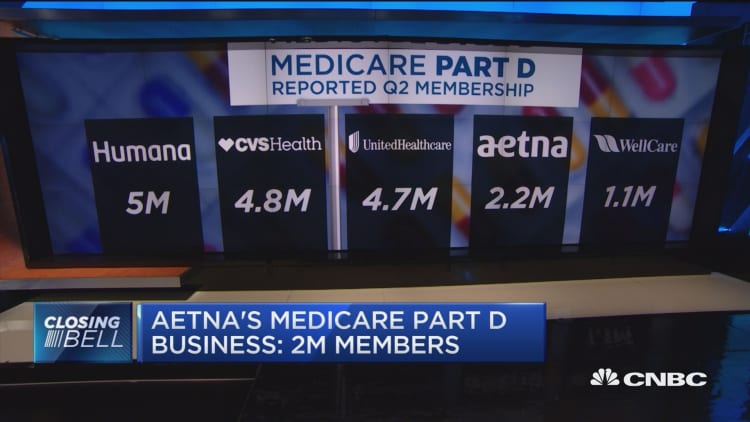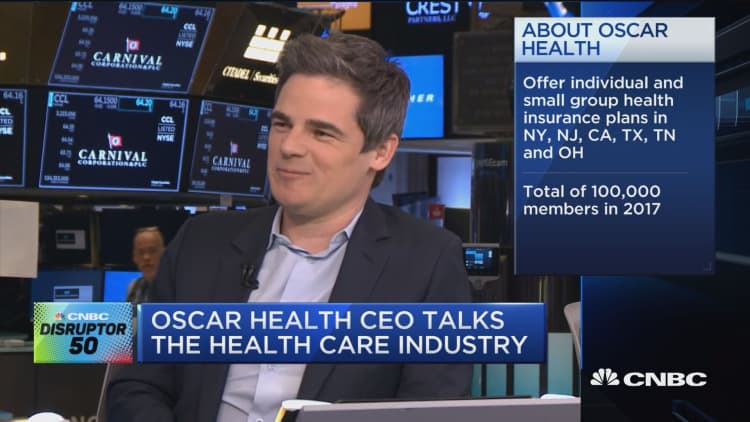The team behind Castlight Health and Athenahealth, both public companies in health-tech, are onto their next billion-dollar venture.
Devoted Health, a health insurance start-up targeting seniors, is now valued at $1.8 billion, people familiar with the matter told CNBC, after raising $300 million in fresh capital earlier this week. The sources asked not to be named because the valuation wasn't disclosed.
Todd and Ed Park, brothers and serial health-tech entrepreneurs, founded Devoted last year, jumping into the market for Medicare Advantage (MA) plans, which provide coverage for people over age 65. It's a lucrative opportunity for business, because baby boomers are aging into Medicare, and people who use MA receive benefits through private health plans but with big government payouts to the insurers — about $10,000 on average per member.

"if we can keep people healthier, it's better for the patient and the wallet," wrote Vijay Pande, a partner at venture firm Andreessen Horowitz, in a blog post. Pande led the latest funding round.
A spokesperson for Devoted Health declined to comment on the valuation.
Devoted's big raise — and its valuation — is to be expected given the background of the team and the capital requirements for any new insurance business. The Park brothers previously helped build Athenahealth and Todd co-founded Castlight, where Ed also sits on the board.
But it also reflects the fact that Devoted is in a hot space that's attracting investor attention.
Bright Health has raised $240 million from a number of venture capital firms, and Oscar Health recently netted $375 million from Alphabet to expand into new business segments, including MA.
Big checks are needed
Still, it's not easy to find profits, because so much of the money from the government goes directly into providing coverage, which can be very costly. There are ancillary businesses that insurers can eventually create, like a network of primary care clinics.
"The market is huge and disruptive models can do well," said Andy Slavitt, former acting administrator of the Centers for Medicare and Medicaid Services. Slavitt, who recently started a venture firm, said investors have to be prepared to write big checks, because "it does take significant risk-based capital."
Another benefit to emerging companies in the space is that politicians across the aisle approve of it. Republicans like that private plans can offer new types of benefits that aren't limited by government restraints, and Democrats support it because it provides another way to provide seniors with affordable care.
Investors also see a role for technology. As more seniors are opting to age at home, there are new products being developed for remote patient monitoring that can help keep people out of the hospital, where costs are the highest. And there are innovative ways to use data. Devoted hired DJ Patil, the former U.S. chief data scientist and an ex-LinkedIn technologist, to figure out who's most likely to get sick in its population using predictive analytics, so care teams know where to focus their attention.
WATCH: Oscar Health CEO says his insurer is consumer friendly



